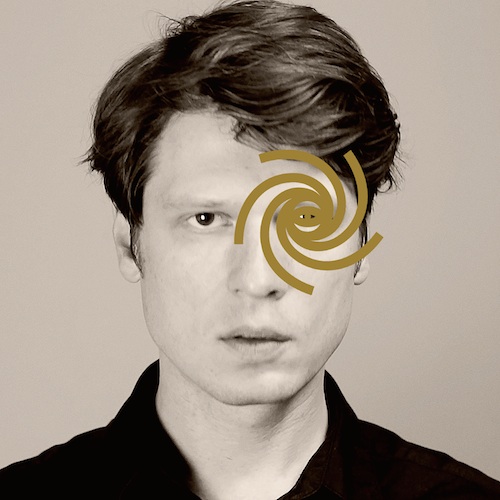Prepared By: Tuğçe Yapıcı
Named after the Egyptian singer Oum Kalthoum, the Berliner band Oum Shatt’s 4-track-EP “Power to the Women of the Morning Shift” (2013) struck me immediately at first listening, making me feel as if I found a hidden treasure. Although I was late to discover, fortunately the band was still active and they were about to release their first eponymous LP in last May.
Upon being taken by Oum Shatt, listening to the EP over and over again, recommending the album to a bunch of friends and seeing that their reaction was similar to mine, I got down to dig for the secret lying underneath the striking effect of those surf-psych songs harboring Anatolian psychedelic rock sound. It was all clear when I came across the “favorite artists” section on their Facebook page: Selda Bagcan, Orhan Gencebay, Fikret Kizilok, Baris Mancho, The Devil’s Anvil, Elias Rahbani etc… Besides, I found out that the vocalist/guitarist Jonas Poppe has been playing DJ sets (click for a taste of his sets) including psychedelic Arabic and Anatolian rock songs for long years in Berlin clubs. Seeing his deep knowledge of eastern music, it became easier for me to understand the way Oum Shatt comfortably avoided clichés frequently encountered in synthesis of eastern and western music. Undoubtedly I can tell you that Jonas has a brilliant knowledge of 60s/70s psychedelic Anatolian rock culture, more than the great majority of the Turkish-speaking people. Thanks to him, I even discovered a new band I’d never heard of before: Volkanlar Orkestrasi.
I’m sure it’s just a matter of time before Oum Shatt reaches the audience in Turkey -with their sound being quite familiar to us- and makes it a frequent destination for gigs. They are eager to hit the stage in Turkey as soon as possible. I hope the listeners will discover them soon and then we can see Oum Shatt live time after time.
When and how did you start to take interest in Arabic music for the first time?
I always liked Middle Eastern harmonies. They have some depth and mystic melancholy which I couldn’t find in Middle European major scales. I love Greek-Turkish Rembetika music, which is like a forgotten link between Europe and the Middle East; I discovered that kind of music about ten years ago and it still keeps me excited.
How did you delve into 60s & 70s Turkish Anatolian rock and psychedelic music? Could you name a couple of your most interesting discoveries?
Anatolian Psychedelic music is a kind of its own. On the one hand, the western style music was copied, just like anywhere else in the world. On the other hand, it was mixed with traditional Turkish music, sometimes in a very experimental and original way (i.e. Mogollar). For sure I like Erkin Koray, Baris Manco and Selda. But there’s also a lot of other musicians and bands which I really like, some of them very unknown though: Murat Ses (and Agri Dagi Efsanesi), Cahit Oben (and other projects around Fikret Kizilok), Kupa Dortlusu, Uc Hurel, Alpay, Apaslar, Siluetler and a couple of surf and instrumental bands, Volkanlar Orkestrasi etc.
Have you made any recent discoveries of music from Turkey, do you follow the recent acts from here?
Yes, sometimes. But unfortunately I always forget the names. Rock’n’Roll Alzheimer…
You have been playing Arabic and Turkish records in Berlin clubs for years. Can you give me examples of the most interesting reactions from the audience?
One time there was a huge group of Israelis, all dancing to Arabic music all night long. You might say: ‘So what? It’s normal!’ but one of the greatest American-Arabic records (‘The Devil’s Anvil, Hard Rock from the Middle East’) had huge problems of being accepted and appreciated, because it was released during the Arab-Israel war in 1967. And things don’t seem to have changed.
I know that you were influenced by The Devil’s Anvil as well as Erkin Koray. What do you think about the heavy The Devil’s Anvil influence on Erkin Koray’s music? It is quite a debatable issue in Turkey in terms of imitation and originality of Erkin Koray’s music.
Really? I didn’t know that! Anyway, his ‘Electronic Turkuler’ album is definitely a great and original record.
What were your resources to cultivate your vinyl collection? Have you been to Turkey or Middle Eastern countries to dig for vinyls?
I had a gig in Istanbul with my ex-band Kissogram. In my free time I went to buy some old, dusty, scratched records. Unfortunately most of them were way too expensive. But I had some tea or coffee with the shop owners and bought some singles or old postcards, ashtrays or stuff like that.
You collaborated with Sarah Benabdallah for the Arabic version of ‘Power to the Women of the Morning Shift’ in the new EP. How did you decide to include her as the vocalist and is it just a one-time only collaboration?
She once wrote me a mail, I remember. She’s cool. But I never met her. Sure, I’d like to do another song with her. Maybe ‘Gold to Straw’. I just want to change the lyrics a bit.
You used your wardrobe as a vocal booth from time to time during the recording process. Do you consider the relationship between music and space an important factor determining the end product?
Somehow yes, but more in a technical way. I usually don’t like staying in wardrobes. I just did it for the sound. Also I was able to sing loudly without disturbing my neighbours at 4 A.M. in the morning.
The name Oum Shatt makes a reference to the Egyptian singer Oum Kalthoum. There are many musicians in the world including Robert Plant, Bob Dylan as well as Zeki Müren, Orhan Gencebay, Müzeyyen Senar etc. from Turkey struck by the influence of Oum Kalthoum. What can you tell about her music and influence of it on Oum Shatt’s music?
Oum Kalthoum was an amazing singer. She was one of the first of those whose voice was heard in the West. But it’s hard to speak about influences. I’m also influenced by Bob Dylan and maybe also by Led Zeppelin and Orhan Gencebay, who knows… I can’t say in what way. Usually when I write and produce songs I don’t listen to other music too much. There’s definitely too much music in this world. And every musician, every band is trying to touch you emotionally or to make you buy stuff, to scream into your face or to masturbate in front of you. We need to find a way out of this and then a new approach. A side entrance.
I read that you listened to Omar Souleyman on the tour bus. He frequently visits Turkey to give concerts and he has fans here. What do you find original about his music?
He’s maybe not the most original guy but definitely crazy enough for our tour bus radio.
There is this great example of Arcade Fire who revives a disco sound adopting African rhythms. I don’t know if you see the analogy but I think your music is a similar case to theirs. Do you think Oum Shatt’s disco sound harboring Arabic psychedelic melodies are potentially as lucky as this example of Arcade Fire? If not, what may be the difference in terms of the audience perception?
It’s always a balancing act to adopt music from different regions and traditions. It’s the right of the artist to take whatever he needs to create something new. But he should be sensitive about different traditions and avoid clichés. Also the dominance of Western style music has to do with political and economical dominance. It’s really important to conserve musical heritage from different regions and to mess around with it in a unique way like some bands from UK do. But I think there are a lot musicians in Turkey, or let’s say Nigeria, who deserve our attention too.
Is there a particular difference between the reaction of listeners from east and west to your music? Have you ever had a chance to tour in the Middle Eastern countries?
People react differently. We got a lot of very positive reviews in Germany but many writers describe us as strangely bizarre or mystical, which i take as a compliment. French people are definitely more used to that kind of sound. But in the end I must confess: We’re just a bunch of poor whiteys, raised with Elvis, the Velvet Underground and the Beastie Boys. We’re still in the discovery mode. And we take that serious.
I guess you’ve never played in Turkey so far, that’s a pity. Are there any plans to play here in the near future?
Sure we’d love to. We will try to set something up. Would be helpful to find a promoter first. Like I said I was in Beyoglu with my old band and I highly enjoyed it.



